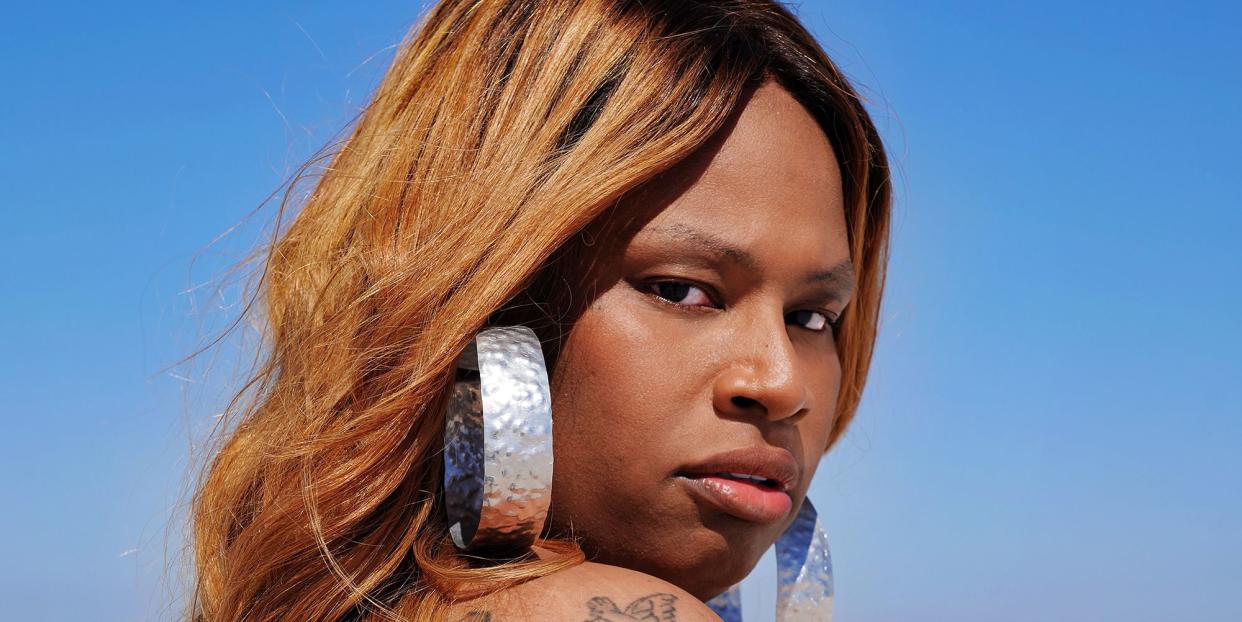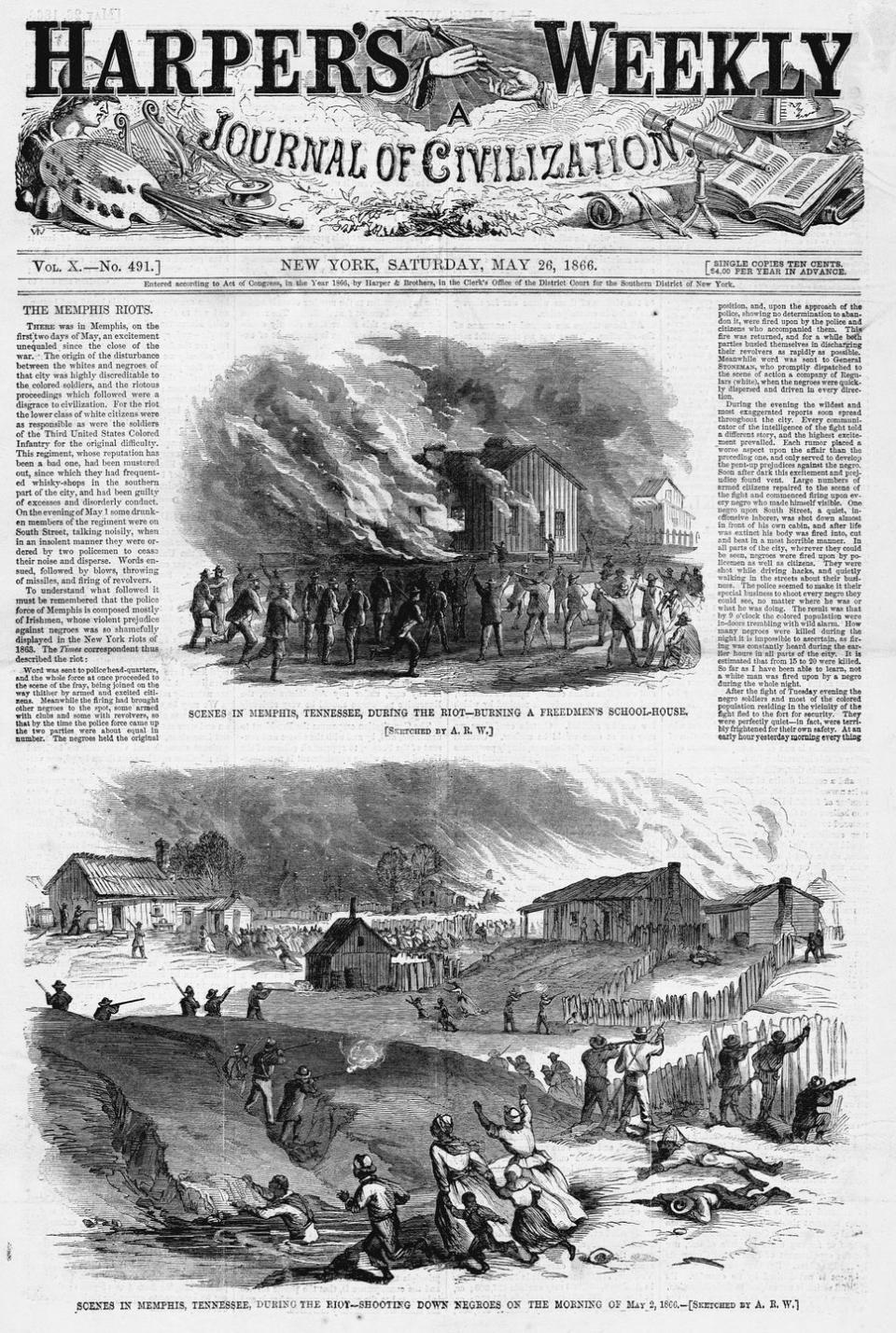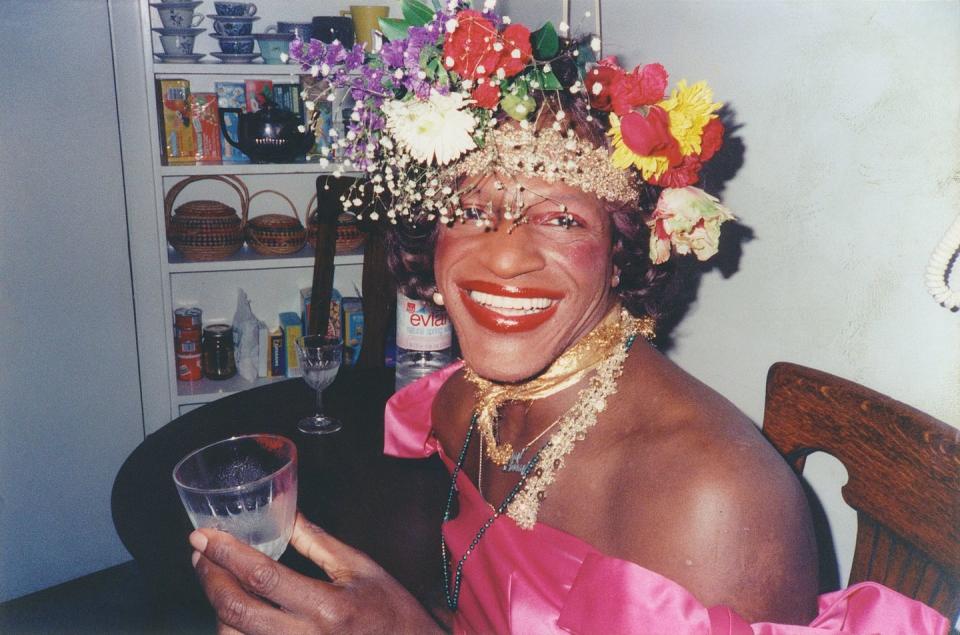Black Trans Women Have Always Been Integral in the Fight for Women’s Rights

The women’s rights movement wouldn’t be the indomitable force it is today without the radical leadership of women of intersectional identities. A term coined by a Black woman professor by the name of Kimberlé Crenshaw in 1989, intersectionality is used to describe the depths of discrimination an individual faces when they experience multiple forms of oppression simultaneously. Black trans women are the embodiment of Crenshaw’s elaborate framework. When I advocate for myself as a Black trans woman, the Black, LGBTQ+, and women’s rights movements greatly benefit. I don’t always benefit from each of those respective movements, as the layers of my identity are often at war with one another. Black trans women are left in the crossfire to fend for ourselves. And still, we find ourselves fearlessly advocating for a just and equitable society capacious enough to free up the margins.
As we observe International Women’s Day and Women’s History Month, I’d be remiss not to see and center the beauty, brilliance, and resilience of Black trans womanhood. Our determination to overcome insurmountable odds despite our existence at multiple intersections of oppression is worthy of celebration.
Black trans women have been key contributors to the advancement of the women’s rights movement for well over 150 years. We’ve been here since the beginning of time; the earliest record of our role in women’s advocacy dates back to 1866 when Frances Thompson, a formerly enslaved, disabled, Black trans woman, became a trailblazer in the fight to end sexual violence against women.
She was living in Tennessee during the Memphis Riots—more appropriately known as the Memphis Massacre of 1866. From May 1 to 3, law enforcement ushered a throng of white men into the predominantly Black community of South Memphis where terror ensued. The mob, irate over the Confederacy losing the Civil War, sought retaliation over the ratification of the 13th Amendment, which “legally” abolished slavery, although the exploitation of Black labor continued long after, even to this day via the prison industrial complex.

On paper, all slaves were ordered to be freed. But white leaders found a workaround via the penal system. By exploiting a provision within the 13th Amendment that permitted slavery and involuntary servitude as punishment, they were able to turn a profit from chain gangs. But all the false accusations and trumped-up charges in the world couldn’t keep freedmen from thriving. More than 2,000 Black Americans had even taken new jobs in government. This filled white leaders with an unquenchable wrath. So over the course of three days, they committed robbery, murdered 46 Black people, and set fire to 12 schools, 4 churches, and at least 91 homes.
They also reportedly raped at least five women, including Thompson herself. One night, she and Lucy Smith, a 16-year-old girl in her care, were home in bed when seven white rioters broke into their dwelling. Two of the men wore uniforms with stars, which signified they were police officers. Thompson and Smith were targeted because they were believed to be affiliated with union soldiers. The men demanded that they get up and prepare a meal for them. The ladies complied, making the intruders biscuits, eggs, ham, and coffee. After they took in their fill, the terrorists expressed the desire to have sex with Thompson and Smith. When they refused their advances, the men brutally beat and raped them both before robbing them of their valuables.
The horrors of that night became the catalyst for Thompson’s anti-rape activism, a 140-year precursor to the #MeToo movement. She organized the other four survivors and later that month, they testified before Congress about the atrocities that had taken place. Her testimony, the congressional committee’s findings of the investigation, and outrage from the Black community led to the ratification of the 14th Amendment of the United States Constitution in 1868. This granted citizenship to all formerly enslaved people, who were also extended equal protection of the laws. Black Americans were allowed to bring civil action against white citizens.
Thompson’s courage to sound off on rape culture was radical and revolutionary for her time. For centuries, not even white women were protected by rape laws. Only their husbands or male relatives could report the rape and demand compensation as victims of “property damage.” Imagine what it must have been like to have the perpetrator be your father or husband? On paper, marital rape didn’t become illegal in the United States until 1976. Black women in the 1800s certainly weren’t positioned to charge white men with rape as they were considered chattel, and their masters were permitted under the law to do as they pleased. Not only was Thompson, a disabled Black trans woman, one of the first Black people in American history to testify before Congress, she was also one of the first women and the first trans person to do so.
Many of us were taught that suffrage leader Elizabeth Cady Stanton was the first woman to achieve this milestone in 1878. Stanton’s testimony took place 12 years after Thompson’s—you do the math. Such attempts at erasing Black women from the women’s rights movement are what prompted Sojourner Truth’s “Ain't I Woman?” speech in 1851. The refusal to respect, protect, or acknowledge Black women and their suffering within the early women’s fight for equality was counterproductive, and an indictment on performative progressivism and lateral oppression.
Thompson wasn’t recognized for her landmark moment, because she was viciously othered and had her womanhood revoked. In 1876, a decade after her testimony, rumors that she was assigned male at birth began circulating throughout the South. She was brought into custody and examined by four physicians, who declared her anatomically male. Conservative media used the story to discredit her testimony and accusations of rape, and even went so far as to say the Memphis Massacre was a political ruse. They dubbed Thompson a liar, used every racially inflammatory epithet to defame and dehumanize her, and accused her of being an agent of reconstruction propaganda.
She was also fined a $50 penalty, more than $800 today, for being a “cross-dressing man in women’s clothing,” because trans identity was billed as high fraud. Unable to pay the fine, and with no support from those who benefitted from her bold advocacy, she was sentenced to a men’s chain gang. Despite the fact she was on crutches and had been previously diagnosed with cancer of the foot, Thompson endured so much abuse that she had to be transferred to a medical facility, where she died of dysentery months later. Frances Thompson was a pioneer and a hero, and we should all know her name.
Unfortunately, she is not the only Black trans heroine to be deprived of the honor and dignity she deserved. Much like Marsha P. Johnson, a Black trans pioneer within the queer rights movement more than a century later, Black trans women have always fought to liberate every community our identities overlap with—even when our efforts aren’t reciprocated. We have been at the forefront of racial, gender, queer, criminal, and economic justice since this nation’s inception. Our very existence is political. Every time we stand in unapologetic defiance of society’s pressure to perform gender in ways that feel inauthentic to our core being, we empower women all over the world to exist on their own terms.

Black trans women are contributing to a culture that emancipates all women from structures and social systems that place constraints on our freedom to exercise full agency—and impede our capacity to thrive. This is why it’s important for our cisgender sisters in the struggle to stop using patriarchal notions of womanhood designed to oppress them to in turn delegitimize trans womanhood. We are your fiercest warriors within the women’s rights movement, and we will fight for you like our lives depend on it, because they in fact do. We need to stop reducing other women down to sexual organs and reproductive functions. A body is merely a portal of possibility, not a prison. Our bodies don’t define us, but they can distract us from exploring the entirety of personhood. Womanhood is complex, nuanced, layered, and doesn’t require extrinsic validation from men—or other women.
Black trans women are women, full stop. We will not succumb to societal erasure. Even when transphobia and socioeconomic disparity claim the lives of our comrades, their memories live on through our aspirations and achievements. Our motivation outweighs the threat of intimidation, because we live in a society in which we have absolutely nothing to lose, yet everything to gain. Some may undervalue us because of our race and/or gender identity, but we are no longer assigning their insecurities to our own sense of self-worth.
Women within the Black trans community are the missing piece of the cross-cultural puzzle that completes our collective vision for upward mobility yielding dignity, safety, and access for all women. The moment we experience true racial, gender, and economic justice, every sector of society will benefit from the ripple effects. A win for Black trans women is a win for us all.
You Might Also Like

